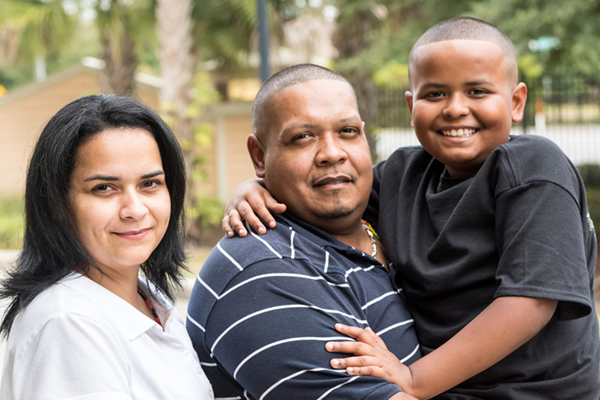- South Texas Students Meet Accordion Music Icons Los Tigres Del Norte In Edinburg Thanks To Khs America/Hohner Alianza Académica Initiative
- Fragile Planet Offers a Nighttime Wildlife Experience
- Falcons Soccer Off & Running
- Cameron County Receives Funds to Improve Two Parks
- Falcons Complete First Half of 32-6A
- School District to Help out Victims of California Wildfires
- Sand Castle Days Continued Despite Unexpected Weather
- Ready for District
- Discussion of Garbage Dumpster Rates, Agreements Between State & City on Highway Regulations, and More
- 31st Annual Shrimp Cook-Off is Right Around the Corner
Report Finds Disparities for Children of Color in Texas, U.S.
- Updated: November 3, 2017

A new report from the Annie E. Casey Foundation encourages public policies designed to keep immigrant families together. Photo: Getty Images
by Mark Richardson
AUSTIN, Texas – A new report finds significant disparities in public policies for children of color and those in immigrant families compared with other groups, in Texas and across the country.
The Annie E. Casey Foundation’s 2017 Race for Results report measures key milestones in childhood development across racial and ethnic groups at both the national and state level.
According to Kristie Tingle, research analyst at the Center for Public Policy Priorities in Austin, the lack of school funding and targeted programs in Texas are obstacles to success for children of color.
“What we see in Texas is that scores for African-American children and Hispanic children in this index tend to be much lower than for white or Asian children,” Tingle said. “And that means that Hispanic and African-American children aren’t necessarily having access to the same opportunities.”
She said for the children of undocumented parents in Texas, current immigration policies pose the threat of being separated from their families. Tingle said the added stress from that can also affect a child’s long-term well-being, including their health, their ability to meet developmental milestones and their academic achievements.
Study co-author Laura Speer, associate director for policy reform and advocacy at the Casey Foundation, said the report examines the obstacles facing children in immigrant families.
“There are more than 18 million children who are themselves immigrants, or who have at least one parent who was born outside of the country,” she explained. “That’s about one in four kids. Their success is really very closely connected to the future success of our country.”
Speer said lawmakers and other public officials need to strengthen policies that make communities more supportive and healthy for families.
“It’s really important to focus on policies and programs that improve opportunities for low-income workers and address the needs of parents and kids,” she added. “These folks are not just workers, they’re also parents.”
The report’s recommendations include keeping families together and in their communities, helping children meet key developmental milestones and increasing economic opportunities for parents.
